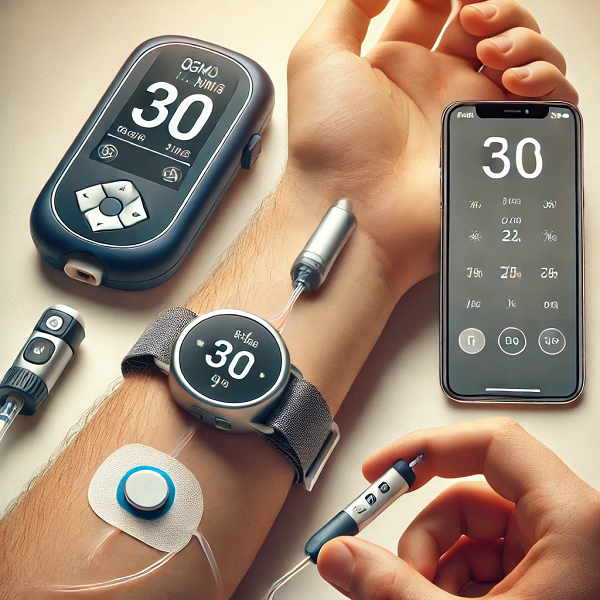Managing diabetes is something you’ll deal with for your whole life, so it’s important to talk to your doctor regularly. You need to be honest and open with them to make sure you’re getting the best care for you. Even though talking about your health can be a little scary at first, it helps a lot if you know what to say and what questions to ask. This guide will help you figure out how to talk to your doctor and manage your diabetes better.
Why Regular Check-ups Are So Important
Whether you’ve just found out you have diabetes or you’ve had it for years, seeing your doctor regularly is a must. These check-ups help your doctor see how you’re doing, adjust your treatment, and give advice on how to live healthier. It’s also a time for you to talk about anything that’s been worrying you, ask questions, and see how your progress is going.
Start by booking appointments every few months. Most people see their doctor every three to six months, but your doctor might want to see you more often, depending on your condition. When you go, be sure to mention any changes you’ve noticed, how you’ve been feeling, and if you’re having any problems with your treatment. This keeps the communication flowing and helps you and your doctor work together to manage your diabetes better.
Getting Ready for Your Appointment
Being prepared is super important when you’re talking to your doctor about managing your diabetes. Before your appointment, write down any symptoms you’ve been having, even if they seem small. Are you feeling more tired than usual? Have you noticed changes in how much you eat or weigh? Do you ever feel dizzy or weak? These things can give your doctor a better picture of how well your diabetes is being controlled.
Also, keeping track of your blood sugar levels helps a lot. Most people with diabetes use a meter or continuous glucose monitor (CGM) to check their blood sugar during the day. Bringing this information to your doctor can show patterns, like if your blood sugar is always too high or too low at certain times. Your doctor might change your medicine or tell you to eat differently based on these numbers.
Finally, think about how you’re feeling overall. Diabetes doesn’t just affect your blood sugar; it can also mess with your heart, kidneys, eyes, and more. If you’ve been having new or worse symptoms in these areas, make sure to tell your doctor during your visit.
Asking the Right Questions
When you talk to your doctor, it’s really important to ask questions so you can understand what’s going on with your health. Here are a few questions you should think about asking:
- What should my target blood sugar be? This will help you know where your numbers should be and how to keep them there.
- How can I better control my blood sugar? Your doctor might suggest changes in your diet, exercise, or medications.
- What side effects could I have from my medication? Knowing the possible side effects can help you handle them if they happen.
- How often should I check my blood sugar? Depending on your treatment plan, your doctor will tell you how often to check your blood sugar levels.
- What should I do if my blood sugar is too high or too low? Your doctor will give you steps to take if your numbers are out of range, like adjusting your insulin or eating certain foods.
Asking these questions helps you be more involved in your diabetes care and makes sure you’re following a plan that works for you.
Talking About Medications and Treatments
Your treatment could include insulin shots, pills, or both. It’s really important to talk with your doctor about how well these treatments are working. If you’re having side effects or if sticking to your plan is tough, don’t be afraid to mention it.
If your current treatment isn’t working for you, ask about other options. For example, some people find it easier to use a continuous glucose monitor (CGM) or an insulin pump. Your doctor can explain these choices and help you decide if one is right for you.
Reviewing Your Diet and Exercise
Eating healthy and staying active are huge parts of managing diabetes. When you meet with your doctor, make sure to talk about your diet and exercise habits. Are there foods you’re not sure about? Are you reaching your exercise goals? Your doctor can give you advice on how to eat better and be more active, which will help control your blood sugar.
If sticking to a healthy plan is hard for you, your doctor might send you to a dietitian or diabetes educator who can give you more personalized tips. These experts can help you make a meal plan and find ways to get more exercise each day.
Managing Stress and Your Mental Health
Living with diabetes can be stressful, so it’s important to talk to your doctor about how you’re feeling. Stress can make your blood sugar worse, and it’s normal to feel overwhelmed sometimes. If you’re dealing with anxiety, depression, or other mental health problems, tell your doctor. They can connect you with a counselor or therapist who knows about diabetes-related stress.
Your doctor might also suggest ways to relax and lower stress, like doing yoga, meditation, or breathing exercises. These activities can help you feel better both physically and mentally.
Setting Goals You Can Reach
Managing diabetes is something you’ll do for the rest of your life, so it’s important to set realistic goals. Talk to your doctor about short-term and long-term goals you can work on together. You might want to lower your A1C levels, lose weight, or bring down your blood pressure. Having goals keeps you motivated and helps you stay on track.
Your doctor can also help you build a diabetes plan that fits your lifestyle. This might mean changing the time you take your medication or finding new ways to be active. When your plan fits you better, it’s easier to follow.
Keeping in Touch
Managing diabetes means you have to keep talking to your doctor. After your appointment, make sure you follow your doctor’s advice, like changing medications or adjusting your diet. It’s also a good idea to book follow-up appointments to keep checking your progress.
If you have new questions or problems before your next visit, don’t wait. Many doctors now have online systems where you can send messages and get answers fast. Keeping the conversation going helps make sure you’re getting the care you need to stay healthy.
Conclusion
Talking to your doctor about diabetes might feel scary, but it’s not as hard as you think. By being ready for your appointments, asking the right questions, and going over your treatment, you’re taking control of your health. Remember, you and your doctor are a team, and with open communication and a good plan, you can manage your diabetes and live a healthy, happy life.nd a personalized plan, you can successfully manage your diabetes and lead a healthy, fulfilling life.
References:
#diabetes #bloodsugar #healthylifestyle #diabetesmanagement #doctorvisit #healthychoices #type2diabetes #diabetestreatment #glucosemonitoring #diabetesawareness






